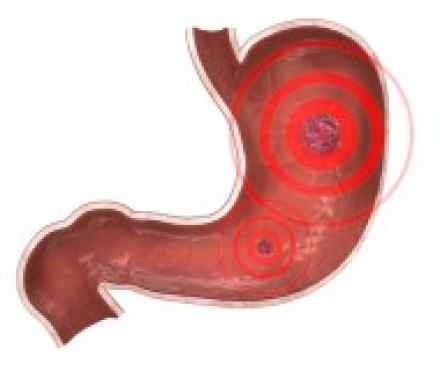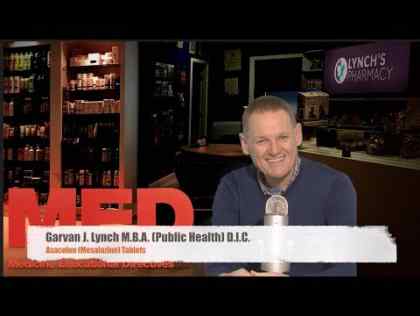
What is it?
Ulcerative Colitis, an Inflammatory Bowel Disease (IBD) that causes chronic inflammation of the digestive tract, is characterized by abdominal pain and diarrhea. Like Crohn's Disease, another common IBD, Ulcerative Colitis can be debilitating and sometimes can lead to life-threatening complications.
Ulcerative Colitis usually affects only the innermost lining of your large intestine (colon) and rectum. It occurs only through continuous stretches of your colon, unlike Crohn's Disease, which occurs in patches anywhere in the digestive tract and often spreads deep into the layers of affected tissues.
There's no known cure for Ulcerative Colitis, but therapies are available that may dramatically reduce the signs and symptoms of Ulcerative Colitis and even bring about a long-term remission.
How do I recognise it?
Ulcerative Colitis symptoms can vary, depending on the severity of inflammation and where it occurs. For these reasons, doctors often classify Ulcerative Colitis according to its location.
Here are the signs and symptoms that may accompany Ulcerative Colitis, depending on its classification:
- Ulcerative Proctitis. In this form of Ulcerative Colitis, inflammation is confined to the rectum and for some people, rectal bleeding may be the only sign of the disease. Others may have rectal pain, a feeling of urgency or an inability to move the bowels in spite of the urge to do so. This form of Ulcerative Colitis tends to be the mildest.
- Proctosigmoiditis. This form involves the rectum and the lower end of the colon, known as the sigmoid colon. Bloody diarrhoea, abdominal cramps and pain and tenesmus are common problems associated with this form of the disease.
- Left-sided Colitis. As the name suggests, inflammation extends from the rectum up the left side through the sigmoid and descending colon. Signs and symptoms include bloody diarrhoea, abdominal cramping and pain on the left side, and unintended weight loss.
- Pancolitis. Affecting the entire colon, pancolitis causes bouts of bloody diarrhoea that may be severe, abdominal cramps and pain, fatigue, and significant weight loss.
- Fulminant colitis. This rare, life-threatening form of colitis affects the entire colon and causes severe pain, profuse diarrhoea and, sometimes, dehydration and shock. People with fulminant colitis are at risk of serious complications, including colon rupture and toxic megacolon, which occurs when the colon becomes severely distended.
The course of Ulcerative Colitis varies, with periods of acute illness often alternating with periods of remission. But over time, the severity of the disease usually remains the same. Most people with a milder condition, such as Ulcerative Proctitis, won't go on to develop more-severe signs and symptoms.
Causes
Like Crohn's Disease, Ulcerative Colitis causes inflammation and Ulcers in your intestine. But unlike Crohn's Disease, which can affect the colon in various sections, Ulcerative Colitis usually affects one continuous section of the inner lining of the colon beginning with the rectum.
No one is quite sure what triggers Ulcerative Colitis, but there's a consensus as to what doesn't. Researchers no longer believe that stress is the main culprit, although stress can often aggravate symptoms. Instead, current thinking focuses on the following possibilities:
- Immune system. Some scientists think a virus or bacterium may trigger Ulcerative Colitis. The digestive tract becomes inflamed when your immune system tries to fight off the invading microorganism (pathogen). It's also possible that inflammation may stem from an autoimmune reaction in which your body mounts an immune response even though no pathogen is present.
- Heredity. Because you're more likely to develop Ulcerative Colitis if you have a parent or sibling with the disease, scientists suspect that genetic makeup may play a contributing role.
How do you treat it?
Like any disease, even if there is no cure, there is almost always something you can do to manage it and take control. There are three main areas involved in the treatment of any disease:
- Conventional medicines
- Complementary medicines
- Complementary therapies
For information on medicines and therapies relevant to Ulcerative Colitis, make an appointment at Lynch's Pharmacy, Broadale, Douglas, Cork on 021-4366923.
Learn all about the drugs used to treat the disease and any complementary medicines or therapies proven to help. Equip yourself with the tools to manage the condition and not be managed by it.
How do you live with it?
Certain adjustments may be needed to get on with your life, and often, some simple tips and advice can go a long way to making these changes.
When you come to a Lynch's Pharmacy Clinic, we give you all the necessary information available to make your life more manageable and allow you to better live with your condition.
References
http://www.mayoclinic.org/diseases-conditions/ulcerative-colitis/basics/definition/con-20043763
Ulcerative colitis, information for patients http://www.cks.nhs.uk/patient_information_leaflet/ulcerative_colitis
http://emedicine.medscape.com/article/183084-overview
http://www.hse.ie/eng/health/az/P/Pancolitis/Preventing-ulcerative-colitis.html


